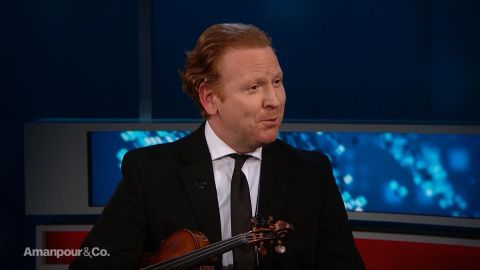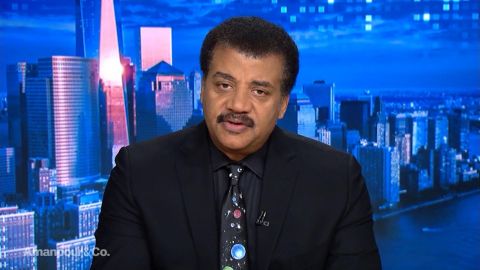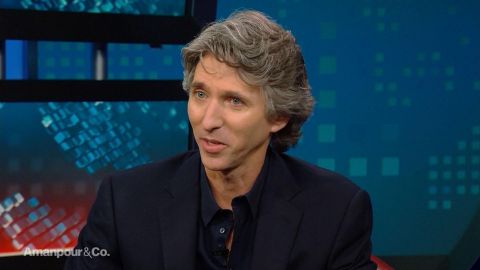Read Transcript EXPAND
CHRISTIANE AMANPOUR: Do you foresee a time when space itself will be, as you put it, weapons and lasers and, you know, intergalactic battles taking place up there or is that just Star Wars fantasy?
NEIL DEGRASSE TYSON: When you think of what a military’s task should be, and this is back to the space force, you want them to — what does $ the military do? They protect you, all right, they provide security for your like. Sometimes it’s at the border, in modern times you need sort of cyber security, this sort of thing. OK. In space, what are they protecting? Well, I have space assets, I have a weather satellite, I have a TV communications satellite. You want to protect those because I’m conducting commerce through them not I — I mean our citizenry. Now, it’s not only the value the hardware that’s up there, it’s the value of the economy that it enables on Earth. So, if you have a weather satellite and it gives you a picture of a moving hurricane and you can warn people and businesses and commerce, “Move. Do this. Take this precaution.” You save money, you save lives. And so, you’d want a space force to protect that, wouldn’t you? So now, I’m a rogue state and I have a satellite that’s kind of irritating your commerce satellite or I’m tickling it, I want block it. So, you’re going to want some way to defend against that. The Outer Space Treaty of 1967, which reads like kumbaya, it’s very beautiful. I mean, it’s very hopeful. We all hold hands and save other astronauts if they’re in trouble. It’s beautifully written. But it allows you to put defensive weapons in space. Now, if I see your satellite coming towards me even though it hasn’t done anything yet and I’m a little spooked and I, as a first strike, take you out, is that defensive; right? So, there’s some gray area there.
AMANPOUR: That’s really gray.
TYSON: Really, really, gray.
AMANPOUR: That’s really gray.
TYSON: We have a space — it’s gray on Earth too, of course. So —
AMANPOUR: So —
TYSON: Now, I don’t see bombs in space. Plus, you’re not going to drop a bomb on Earth from orbit. That’s just not efficient. We already can deliver a bomb through intercontinental missiles. You can send missiles from place one place to another anywhere on Earth within 45 minutes. That’s the amazing thing which makes them so deadly, which is why those things held us hostage, the whole hostage, during the entire length of the cold war. You’re not going to do that because you’ll make a mess of space and then you can’t conduct business, you can’t even conduct military operations. What would — could happen is, if you have colonies on Mars and colonies on the moon, multiple colonies on the moon and then you start getting tribal, you say, “This is my colony. It’s not your colony. It’s my country. Here’s my flag,” I can imagine wars on the surface of the moon, wars on the surface of Mars.
AMANPOUR: So —
TYSON: I can imagine that.
About This Episode EXPAND
Christiane Amanpour sits down with astrophysicist Neil deGrasse Tyson and violinist Daniel Hope. Walter Isaacson speaks with Damian Woetzel, president of The Juilliard School.
LEARN MORE


